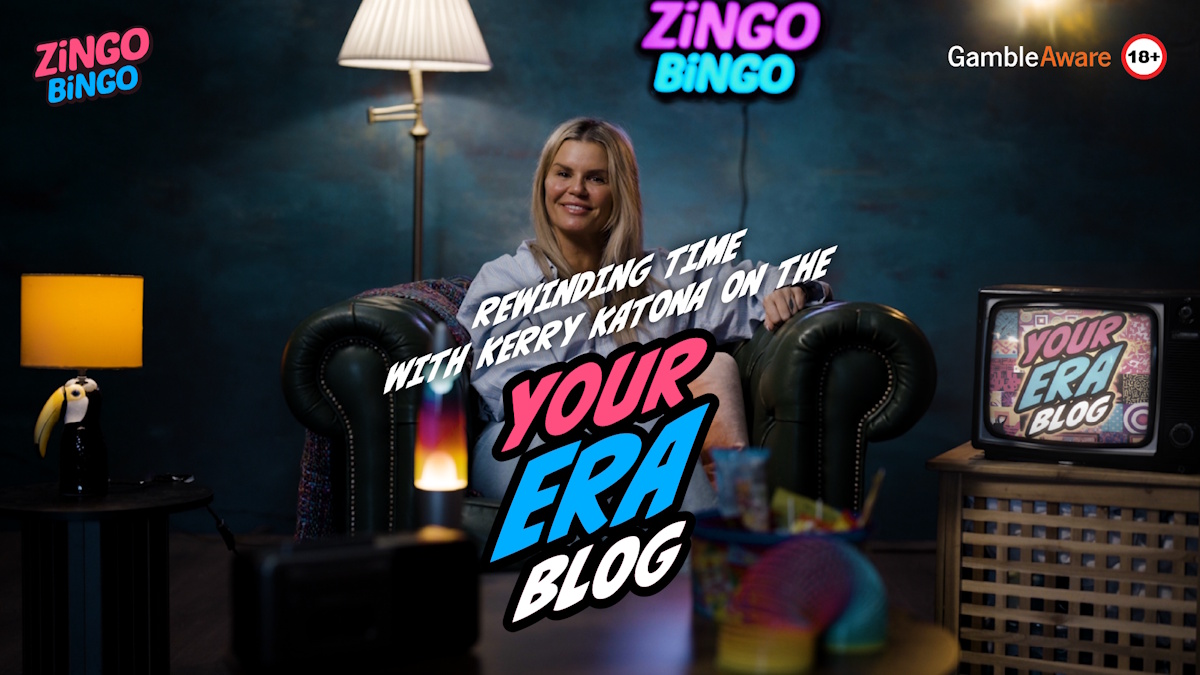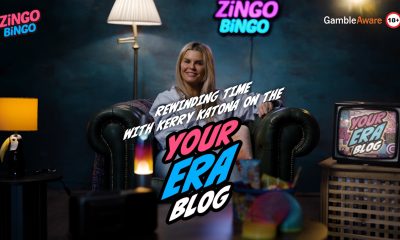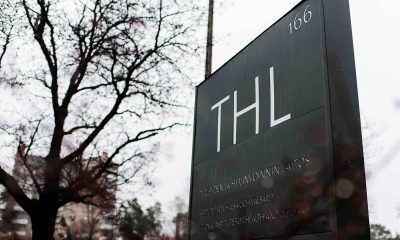Industry News
Maximizing ROI in iGaming: A Deep Dive into Non-Standard Geo-Targeting Through Influencer Marketing (Part 1/2)

Here’s a quick take on influencer marketing in iGaming: it’s all about making waves in the digital world. Popular social media stars teaming up with iGaming brands make them not only well-known, but also more trustworthy. Influencers have got the followers, the trust, and the know-how to get people excited about gambling and betting online. In this article, Anna Zhukova, Team Lead of iGaming vertical at Famesters will delve deeply into smart influencer marketing strategies for this business vertical.
Here are some of the key components of influencer marketing for iGaming brands:
- Engaging the Crowd: Influencers are superstars at grabbing the attention of different players – from those who play just for fun to the serious high rollers.
- Building Trust: When an influencer gives a thumbs-up to a game or a particular online casino, their followers listen. It’s like having a friend recommend your favorite new game.
- Finding the Right Fit: Picking the perfect influencer is key. They need to align with what the iGaming brand is all about.
- Staying in the Lines: iGaming has got rules. Influencers need to play by them to keep things cool and compliant.
- Performance Metrics and ROI: Tracking the success of influencer campaigns through metrics like reach, engagement, and conversions is crucial. This data helps in refining strategies and ensuring a high return on investment.
In short, influencer marketing in the iGaming industry is a trust-building powerhouse: it is a nuanced and effective approach, leveraging the power of influential personalities to build brand trust, engage diverse audiences, and drive business success within a regulated framework.
And here’s another great power that influences the final results of an influencer marketing campaign: geo-targeting. It’s about hitting the right audience, in the right place, at the right time. Here’s why you can’t do iGaming marketing without geo-targeting:
- Audience Segmentation: It’s all about hitting the sweet spot with each region’s unique gaming tastes and cultural vibes. Tailoring content to specific areas means more impact and appeal.
- Regulatory Compliance: Different areas, different rules. Geo-targeting keeps campaigns on the right side of the law, dodging legal headaches.
- Localized Content: This is where you speak their language, literally. You have to adapt to local dialects, cultural hooks, and region-favorite games to ramp up engagement and conversions.
- Cost Efficiency: It’s about smart spending. Better focus your efforts where they count, avoid wasting resources, and watch your marketing budget deliver more.
- Data-Driven Decisions: You can use geo-targeting data to get the lowdown on what works where. This insight sharpens resource allocation, boosting your ROI.
Understanding the iGaming Industry
The iGaming industry, encompassing online gaming and betting platforms, has witnessed exponential growth in recent years. A surge in digital technology adoption and the rise of mobile gaming have been pivotal. The industry’s growth trajectory is marked by technological advancements, expanding into new markets, and an increasing acceptance of online gaming as a mainstream entertainment option. This evolution has opened doors to vast opportunities but also posed unique challenges.
According to Statista, the global iGaming market is expected to reach a revenue of more than $107 billion in 2024.

Traditional marketing methods in iGaming face several hurdles. The biggest is the evolving regulatory landscape, with different countries imposing varied restrictions on gaming advertising. Additionally, the traditional one-size-fits-all approach struggles in a market where gamers’ preferences are as diverse as their geographical locations. There’s also the challenge of ad fatigue, where conventional advertising methods no longer capture the audience’s attention as effectively.
To navigate these challenges, the iGaming industry is turning towards more innovative, targeted, and engaging marketing strategies. Personalization and use of data analytics are becoming increasingly important. Brands are now focusing on creating more immersive and interactive marketing experiences that resonate with their audience on a deeper level.
Influencer marketing is now one of the most powerful tools in the iGaming industry. It leverages social media influencers’ reach and credibility to promote betting and gambling platforms and products. This approach taps into the influencers’ engaged audiences, offering a more authentic and trustworthy promotion method than traditional advertising. Influencers can create content that resonates with their followers, whether it’s through live-streaming games, tutorials, or reviews, thus providing a more organic and engaging way to introduce products to potential customers.
Statistics underscore the impact of influencer marketing. For instance, 66% of marketers using it say that influencer-generated content performs equally or better than branded content. Also, on average, brands earn $5.78 for every dollar spent on influencer marketing.
Understanding the iGaming industry today means recognizing the shift towards more innovative, personalized, and influencer-driven marketing strategies. The industry’s growth is paralleled by the evolution of marketing techniques, with influencer marketing standing out as a key player in engaging and expanding the iGaming audience.
Non-Standard Geo-Targeting
First, you need to understand the tiers in global market segmentation. There are three of them. Understanding the economic and audience characteristics of different tiers is crucial for effective global marketing. Each tier offers unique opportunities and challenges, and selecting the right one depends on a company’s budget, target audience, and industry regulations.
Tier-1 Countries: The Premium Market
- Characteristics: These are the most developed countries with strong economies and a wealthy audience.
- Why They’re Attractive: Businesses target these regions due to the high purchasing power of the audience. This means greater potential for sales and revenue.
- Consideration: Advertising in these countries can be quite expensive. Brands should be prepared for higher marketing costs.
Tier-2 Countries: The Balanced Choice
- Characteristics: These are developing countries. Their economies are well-developed, but the audience’s purchasing power isn’t as high as in Tier-1 countries.
- Why They’re Attractive: They’re a strategic choice for businesses seeking a solvent audience without the high costs associated with Tier-1 markets.
- Ideal for Certain Industries: Tier-2 countries are particularly suitable for advertising sectors like betting, forex, and binaries, which might be restricted in Tier-1 countries.
Tier-3 Countries: High Reach, Low Cost
- Characteristics: Often referred to as ‘third world countries,’ these nations have weaker economies and lower-income populations.
- Advantages: Advertising costs are low, allowing for broad coverage even with smaller budgets.
- Target Audience: These regions are often targeted by industries like gambling, forex, and betting. These sectors appeal to audiences seeking opportunities for ‘easy’ income.
Now let’s take a closer look at the peculiarities of each tier and the countries in it.
High Costs in Tier-1 Markets: A Matter of Solvency
- User Solvency and Payback: In Tier-1 markets, users generally have higher purchasing power, which can lead to better payback for businesses. However, this comes with its own set of challenges.
- Regulatory Hurdles: A significant issue in these markets is the stringent regulation around gambling products. While launching campaigns on platforms like Facebook may not require a license, working with influencers often does.
- Licensing Complexities: Licenses such as MGA (Malta Gaming Authority) or Curacao are necessary for simply working in European countries. However, they don’t authorize advertising in these geographies and targeting users in them. Plus, obtaining advertising permissions is a very complex process.
- Influencer Marketing Challenges: Tier-1 influencers, earning well from less risky advertising options, often steer clear of gambling promotions. Finding one willing to collaborate without a license is rare.
Businesses eyeing Tier-1 markets need to be prepared for higher costs and stringent regulations, especially when incorporating influencer marketing into their strategies. While the financial returns can be significant due to the high solvency of users, navigating the regulatory and licensing requirements adds complexity.
In contrast, Tier-2 markets offer a more accessible and flexible environment for certain types of promotions, including those in the gambling sector. Transitioning from the complex landscape of Tier-1 markets, Tier-2 geographies present a different potential. The regulatory environment is typically less stringent, and the cost of marketing is more manageable compared to Tier-1.
In the next article, we will make it clearer how the countries from different tiers can be connected, what role influencers play in this, and most importantly – how exactly non-standard geo-targeting can be used to reach more solvent audiences with cost-effective strategies. Stay tuned!
Author: Anna Zhukova, Team Lead (iGaming) at Famesters
Gaming Laboratories International
GLI Promotes Patrick Cottingham to Director of Client Services, North America

Gaming Laboratories International (GLI) has promoted Patrick Cottingham to Director of Client Services, North America. Previously, he served as Senior Manager of Client Services. Prior to commencing his career as an engineer with GLI, he served with the US Air Force.
Cottingham’s dedication to his clients was clearly evident both inside and outside of GLI. He transitioned to the Client Services team where he progressed and built a team laser focused on providing the very best customer service where his and his team’s clients have benefited from his engineering and gaming experience.
Ian Hughes, GLI Chief Revenue Officer, said: “We are thrilled to announce Patrick’s well-deserved promotion to Director of Client Services for North America. Patrick leads a team of dedicated and committed client services representatives who ensure our clients receive the best service during their compliance journey with GLI.”
The post GLI Promotes Patrick Cottingham to Director of Client Services, North America appeared first on Americas iGaming & Sports Betting News.
Blueprintx
Zingo Bingo Launches “Your Era” Nostalgia Series Featuring Kerry Katona and Pat Sharp

Zingo Bingo Launches “Your Era” – A Social-First Nostalgia Series for 2026
Zingo Bingo has officially unveiled Your Era, a new short-form social media content series celebrating iconic throwbacks, shared nostalgia and the cultural moments that defined generations. The series launches in February 2026 and will roll out weekly across TikTok, Instagram, Facebook and YouTube.
Designed to strengthen Zingo Bingo’s identity as a home of nostalgic fun, Your Era focuses on authentic conversation rather than traditional promotional content. The format highlights music, fashion, technology and pop culture milestones that shaped each guest’s personal journey.
Kerry Katona and Pat Sharp Headline Series One
The first confirmed guests include Kerry Katona, singer and media personality best known from Atomic Kitten, and Pat Sharp, the iconic radio and TV presenter associated with classic UK entertainment shows. Additional celebrity names will be revealed throughout the year.
Each episode features five themed nostalgia segments crafted to spark memories, conversation and emotional connections among viewers.
What to Expect from “Your Era”
Every guest takes part in recurring throwback features designed to boost engagement and relatability:
- The Memory Bag – Guests reveal five nostalgic items and share the stories behind them
- Flashback Files – A rapid-fire interview covering music, fashion, tech and cultural trends
- Mixtape Memories – Guests curate throwback tracks for the official Your Era playlist
- Taste of the Past – Sampling retro sweets and snacks while rating nostalgia levels
- Yesterday’s News – A humorous headline-guessing game using real throwback media stories
The series aims to tap into the growing popularity of nostalgia-driven digital content while positioning Zingo Bingo as a community-led entertainment brand.
Built by Kinetic Digital and Blueprintx
Your Era has been developed by Zingo Bingo’s operators, Kinetic Digital, in collaboration with long-term creative partner Blueprintx. Blueprintx has previously supported digital and television campaigns for Kinetic Digital brands including Prime Casino and Slingo.
The production strategy prioritises shareable, short-form content optimised for social discovery and influencer amplification, with episodes distributed across dedicated platform pages as well as guest channels.
A Strategic Play for Community Engagement
Jack Watson, Brand Manager at Zingo Bingo, said the series reflects the brand’s commitment to fun, familiarity and connection.
“Your Era is about celebrating the music we replayed, the fads we cringe at and the memories that still make us smile. It’s designed to bring people together through shared nostalgia while reminding audiences that bingo is about enjoying those moments collectively.”
Series one will feature six guests throughout 2026, with new weekly segments designed to drive audience engagement and repeat viewership.
The post Zingo Bingo Launches “Your Era” Nostalgia Series Featuring Kerry Katona and Pat Sharp appeared first on Eastern European Gaming | Global iGaming & Tech Intelligence Hub.
Industry News
Ex-Paysafe VP Justin Fraser takes chief revenue officer role at Yaspa to drive global growth

Yaspa, the renowned fintech focusing on instant payments and identity solutions, today reveals the appointment of Justin Fraser as its Chief Revenue Officer.
Fraser becomes part of Yaspa’s executive team during a crucial period of global growth. He has more than 20 years of commercial leadership experience in the payments ecosystem, having occupied senior leadership positions at notable industry companies like Cybersource, Visa, and Paysafe.
Having a career centered on maneuvering through intricate payment environments, he offers knowledge in rapidly expanding, regulated sectors such as iGaming, cryptocurrency, and financial technology.
As the new CRO, Fraser will manage Yaspa’s worldwide commercial strategy, concentrating on expanding the company’s Intelligent Payment platform, which integrates open banking with AI-powered customer insights, throughout the UK, Europe, and North America.
Yaspa CEO James Neville said: “We are thrilled to welcome Justin to the team during this period of rapid acceleration. His deep expertise in navigating complex regulatory environments and his proven track record in scaling payment solutions are invaluable assets as we expand our footprint in the US and beyond. Justin’s appointment further strengthens our leadership as we continue to help businesses lower costs, grow revenues, and enhance financial compliance through open banking.”
Justin Fraser said: “Yaspa is at the forefront of the shift toward real-time payments. The company’s unique blend of open banking and AI-verified insights solves genuine friction for merchants, particularly in industries like iGaming. I am excited to join such an innovative team and look forward to driving the next phase of our commercial growth globally.”
Fraser will collaborate closely with the recently strengthened US team, which includes the newly appointed US Sales Lead, Peter Kula, and US Senior Solutions Manager, Jackson Esoda.
This statement comes after a year of significant growth for Yaspa, highlighted by increasing its workforce from 15 to 75 employees and successfully securing a $12 million investment round spearheaded by Discerning Capital. In this timeframe, the firm broadened its international presence with new ventures in Atlanta and Leeds, while winning esteemed honors such as the 2025 Payments Award for Real-Time Payments Innovation and a spot on the CB Insights Top 100 Fintech list.
The post Ex-Paysafe VP Justin Fraser takes chief revenue officer role at Yaspa to drive global growth appeared first on Eastern European Gaming | Global iGaming & Tech Intelligence Hub.
-

 Amusnet4 days ago
Amusnet4 days agoWeek 7/2026 slot games releases
-

 Aphrodite’s Kiss4 days ago
Aphrodite’s Kiss4 days agoLove on the Reels: Slotland Introduces “Aphrodite’s Kiss”
-

 Denmark5 days ago
Denmark5 days agoRoyalCasino Partners with ScatterKings for Company’s Danish Launch
-

 Finnish Institute for Health and Welfare7 days ago
Finnish Institute for Health and Welfare7 days agoFinland’s Health Authority Launches “2-4-2” Gambling Risk Limits Ahead of Expected Advertising Boom
-

 Latest News6 days ago
Latest News6 days agoWinSpirit’s UnValentine’s Day: A New Take on February Engagement
-

 Bryndís Hrafnkelsdóttir7 days ago
Bryndís Hrafnkelsdóttir7 days agoNOVOVISION Implemented at the University of Iceland Lottery
-

 40 Treasures7 days ago
40 Treasures7 days agoCT Interactive Enters into Partnership with Mozzartbet.rs
-

 Booming Games5 days ago
Booming Games5 days agoTreasure Hunt Revival — Booming Games Launches Gold Gold Gold Hold and Win































